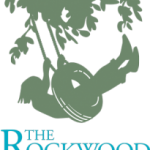By Gwen Rockwood, newspaper columnist and mama of 3
When my kids first started school, I hoped that one day they’d learn a second language, and now they have. But they didn’t learn it in the classroom or from after-school tutors. They learned it at recess and lunchtime and during the bus ride home. And the only people who understand what the heck they’re saying are other kids who’ve also immersed themselves in this unique second language known as “Pokemon”.
For the record, Pokemon is not an actual language. It’s a kid’s video game invented by a Japanese designer, and it first hit the market back in 1996. Since then, the video game morphed into cartoons, books, toys and trading cards. The weird name is actually a combination of the words “Pocket Monsters”. Pokemon became wildly successful, selling a cumulative 200 million copies around the world.
When the boys started asking if we would buy them Pokemon trading cards, I said no. I’ve been around long enough to know that kids stick to toy trends about as long as they stick to a shoe size. It can go by in a blur, and, before you know it, you’re putting a whole collection of toys – that your kids just HAD to have – into your next garage sale for the whopping price of a quarter each.
Having been burned on “must have” toy fads before, I told the boys they’d have to use their own money to buy Pokemon cards. So they saved up their “paychecks” from weekly chores and went to Wal-Mart with their dad to buy their first pack of trading cards.
Since that day, I’ve overheard lots of Pokemon conversations between the boys and their neighborhood friends. To me, the dialogue sounds like gibberish. Just to prove it, I jotted down notes today when the boys played a round of Pokemon cards after school. Here’s that conversation:
Jack: “I use my 50 attack card and you take 10 damage to your bench Pokemon.”
Me: “What’s a bench Pokemon?”
(Jack gestures toward the row of cards laying in front of them, and I notice an unmistakable expression of “Duh, Mom!” in his eyes.)
Adam: “Okay, hmmm. I’ll do my Scolipede, the evolver of the Whirlipede, and I put 80 damage on you. Awesome! Scolipede has poison claws! By the way, did you know that a Pignite evolves into an Ember?”
Jack: “Seriously? That’s cool. Okay, then that guy is knocked out. Then I’ll put my 60 damage on you and now you’re knocked out.”
Me: “How does each Pokemon get knocked out, and what’s up with all this damage you keep talking about?”
Jack (sounding a little exasperated at having to give me the “Pokemon for Dummies” crash course): “You have to do the math, Mom. You take your Pokemon health number and minus the damage.”
Adam: “But don’t forget you also have Trainer cards that can help your Pokemon boost up his health after getting damage and stuff like that. Then the other Pokemon you’re battling will faint before you do.”
Me (nodding as if I understood a single word they just said): “Oh, I get it. Cool game.”
Then I fled the room so they wouldn’t find out that all this Pokemon stuff still sounds like Portuguese to me, even though it has become so easy and natural for them.
Though I don’t understand it, I’m amazed by the vast amount of knowledge kids can soak up when they deem it “cool”. There are 649 fictional characters in the Pokemon world along with lots of details about each one of them. Kids not only memorize the card information but they also remember exactly how they got that card, as in “I got this one from Jacob on the bus when I traded him my Samurott water type for his Wormadam fighting type! Awesome trade.”
If teachers could just give mathematical concepts different names and personalities and let them “do battle,” I bet kids could master advanced calculus in the second grade. Grade-schoolers could probably even solve our economy’s complex financial problems if we’d just give each of the major issues special fighting skills (like poison claws) and the ability duke it out with other menacing issues. The kids could negotiate, persuade,  convince and swap cards around until the budget was balanced, fiscal “damage” was repaired and economic “health” was boosted – just in time for an after-school snack.
convince and swap cards around until the budget was balanced, fiscal “damage” was repaired and economic “health” was boosted – just in time for an after-school snack.
Gwen Rockwood is a mom to three great kids, wife to one cool guy, a newspaper columnist and co-owner of nwaMotherlode.com. To read previously published installments of The Rockwood Files, click here.






Hi,
Interesting! When I was teaching, I created a multiplication chart using the Pokemon numbers/names. The kids loved it!
Now retired for 10 years, I find I’m back in the Pokemon world with my grandsons. (Wish I’d kept that chart!)